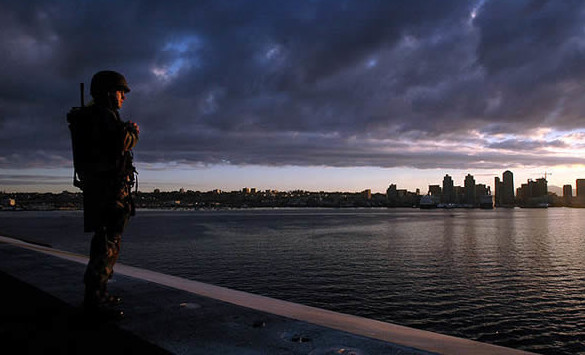The podcast Radiolab recently devoted an hour to the 60 words they say became the “the legal foundation for the ‘war on terror.'” The podcast discusses the Authorization for Use of Military Force (AUMF), which was passed by Congress after September 11. The episode relies heavily on the reporting of Gregory Johnsen of BuzzFeed. Yes, BuzzFeed, no longer just a series of animated GIFs about what it feels like to be twenty-something.
Here are those 60 words:
That the President is authorized to use all necessary and appropriate force against those nations, organizations, or persons he determines planned, authorized, committed, or aided the terrorist attacks that occurred on September 11, 2001, or harbored such organizations or persons, in order to prevent any future acts of international terrorism against the United States by such nations, organizations or persons.
The episode makes two key points. One, the AUMF has been stretched to authorize a range of activities in numerous countries. This is partially because the executive branch has stated that the AUMF allows them to go after “associated forces” beyond just the direct perpetrators of September 11 – even though the words “associated forces” are not in those 60 words. Second, the podcast makes the point that the War on Terror is a unique war, where the enemy is hard to define and the terms of victory are vague. This makes setting rules to govern conduct in this war very difficult.
Both points are important. The show discusses the policy around drone strikes, where a group of lawyers and bureaucrats meet to determine if they have the mandate to kill a suspected terrorist. On one hand, this is reassuring – there are people who think critically about whether this country should use a weapon that is both deadly and easy to deploy. But it’s also disconcerting that these people are mostly unelected, and that there is little transparency in this process.
For someone who’s not a strict dove or hawk, drone strikes are a tricky issue. After years of soldiers dying in foreign countries, the ability to kill our enemies without endangering our soldiers is appealing. But drone strikes, which (like all military measures) are not free of collateral damage, have the very real potential of creating more enemies than they kill. Performing a cost-benefit analysis on drone strikes seems distasteful – and is practically impossible – but unless we want to ban the use of drones, these things will have to be considered. My own perception is that the U.S. uses drones too freely, and is probably doing more harm than good.
Looking more generally at the War on Terror, the episode is right to point out the War on Terror’s Orwellian nature. The upside of a war against a diffuse enemy is that it would be easy to declare victory, but Washington seems to find reasons to continue the war. Radiolab host Jad Abumrad asks, a little melodramatically, “what’s the difference between war and peace?” when the U.S. is continuously engaged in counterterrorism operations. This is after the program notes that while President Obama has declared his intention to end the War on Terror, many of the war’s operations will probably continue.
A declared end to the War on Terror, while symbolic, is still important. It’s true that counterterrorism will continue to be a focus of the national security apparatus. America has long conducted diplomatic and military operations in “peacetime,” which is how it will always be unless the U.S. chooses to turn isolationist. But removing that label of the “War on Terror” will have effects. Most notably, it will make it a little harder to justify government actions that violate liberty in the name of security. Even a wary peace will be good for a country numbed by war.
But labels must be followed by actions. The U.S. military traditionally contracts in peacetime, and Defense Secretary Hagel’s budget calls for slightly less defense spending. President Obama has stopped some practices of the War on Terror, such as torture. The question remains if the president will go further. This would be entail closing Guantanamo Bay and scaling back the domestic surveillance regime. These actions would be risky (especially if another attack occurs), but would help set precedents that future presidents would find difficult to break.
Even if the War on Terror is not officially over, the American people have clearly signaled their desire to end large-scale U.S. military actions in the immediate future. The ability of voters to check government action is imperfect and slow-moving – it took over a decade, numerous scandals, and thousands of lives lost before the majority of the public turned against the War on Terror. But for most of human history leaders waged war with little thought to the opinions of the masses. Representative democracy is still good at reining in the extreme political overreach and folly, and that counts for something.
